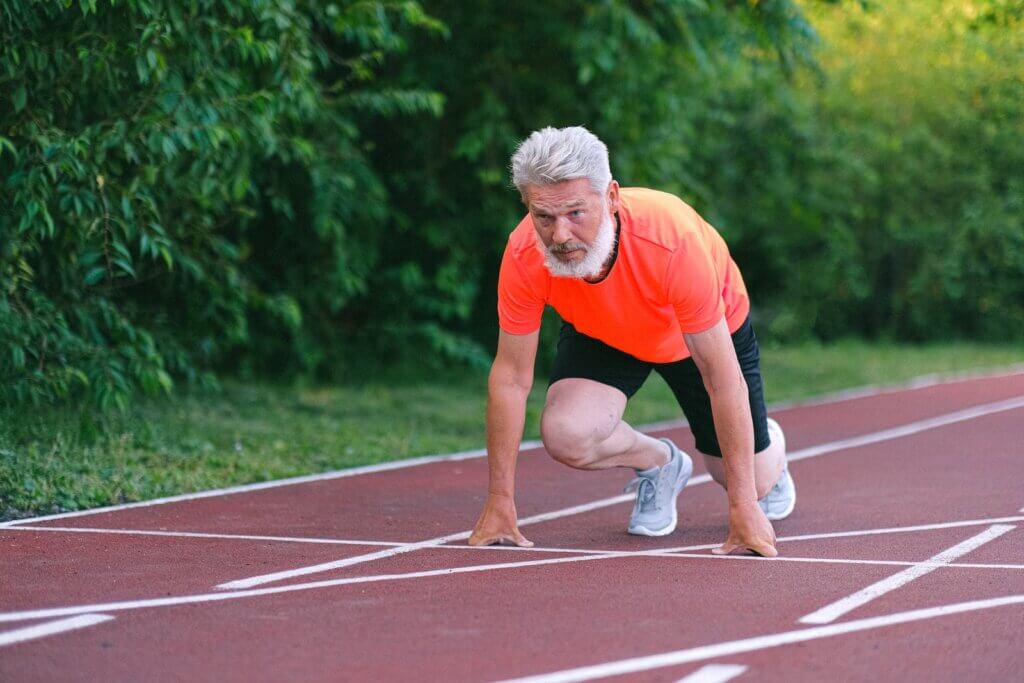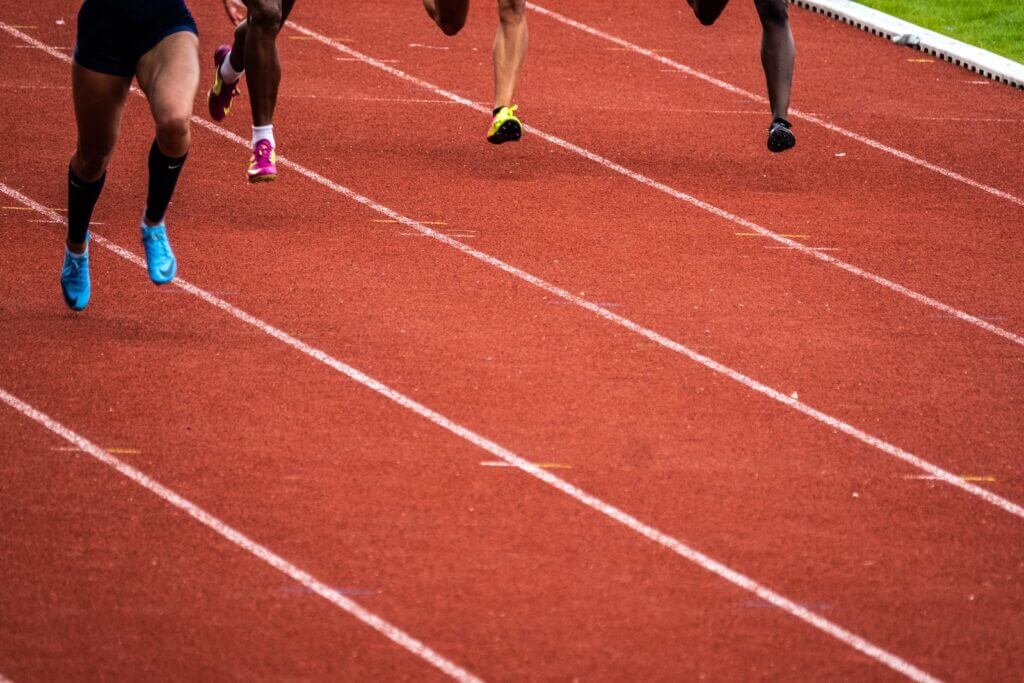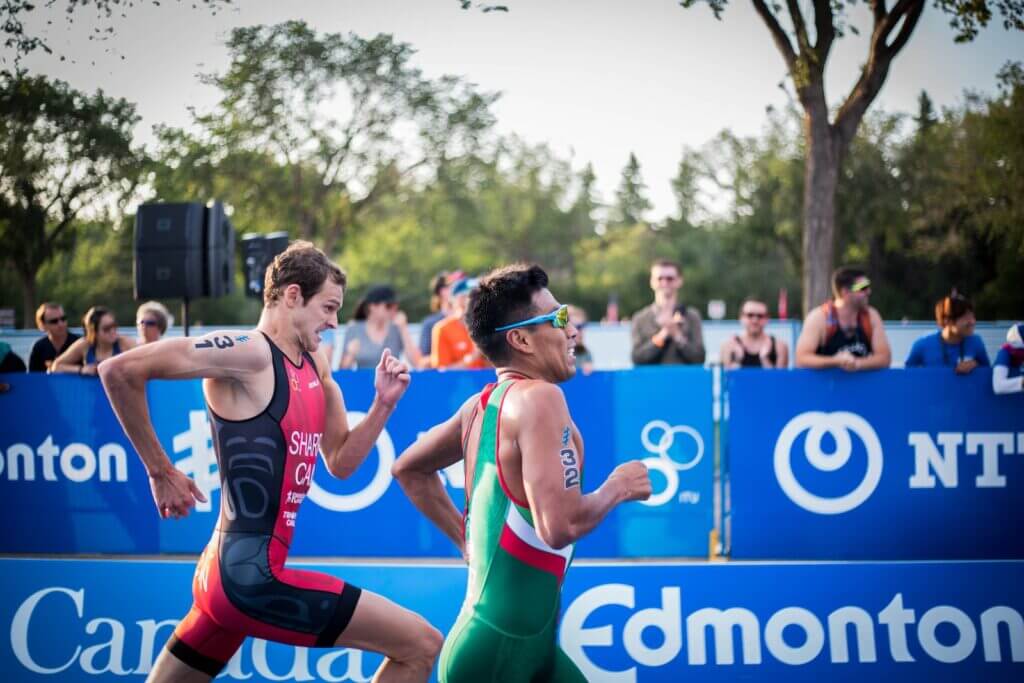Imagine standing at the starting line, ready to push your limits in the 800-meter race. The burning question on your mind: What is the average 800 meter time?
In simple terms, the average 800 meter time for a runner can vary depending on factors like age, fitness level, and sex. Generally, a good performance falls within the range of 2 minutes to 2 minutes and 30 seconds.
But don’t worry if you’re not there just yet – this guide will help you understand the nuances and strategies to improve your 800 meter time. Get ready to dive into the exciting world of achieving an exceptional performance in the 800-meter race!
Table of Contents
Average 800 meter Time By Age and Sex

Now, let’s dive into the fascinating world of average 800 meter times across different age groups and sexes. Understanding these benchmarks will give you a clear picture of where you stand and what to aim for in your own performance. So, let’s break it down!
Average 800 meter times for males:
- In the 8 to 10 age range, a good time is around 3 minutes and 30 seconds.
- As boys progress to the 11 to 14 age group, the average time drops to approximately 3 minutes.
- For high school boys (15 to 18 years old), a respectable time ranges from 2 minutes and 10 seconds to 2 minutes and 30 seconds.
- In the adult category, a good performance for men falls between 1 minute and 50 seconds to 2 minutes and 10 seconds.
Average 800 meter times for females:
- In the 8 to 10 age range, a good time is around 3 minutes and 40 seconds.
- As girls move into the 11 to 14 age group, the average time decreases to approximately 3 minutes and 20 seconds.
- For high school girls (15 to 18 years old), a respectable time ranges from 2 minutes and 30 seconds to 2 minutes and 50 seconds.
- In the adult category, a good performance for women falls between 2 minutes and 10 seconds to 2 minutes and 30 seconds.
To help you visualize these average 800 meter times by age and sex, here’s a handy table:
| Age Group | Male Average Time | Female Average Time |
|---|---|---|
| 8-10 years | 3:30 | 3:40 |
| 11-14 years | 3:00 | 3:20 |
| 15-18 years | 2:10 – 2:30 | 2:30 – 2:50 |
| Adults | 1:50 – 2:10 | 2:10 – 2:30 |
Remember, these are average times, and individual performances can vary. It’s essential to focus on your personal progress rather than comparing yourself to others.
As you continue your training and development, aim to improve your own time and reach your full potential.
Read: Average 400 meter time
Average 800 meter Time By Fitness Levels

When it comes to the average 800 meter time, it’s important to consider different fitness levels. Let’s break it down for you:
Beginner
As a beginner, you might be just starting your journey in running or have limited experience. In this fitness level, the average 800 meter time ranges from 3 minutes to 4 minutes.
Novice
Moving up the ladder, as a novice runner, you’re getting more comfortable with the distance and improving your fitness. At this level, you can aim for an average 800 meter time between 2 minutes and 30 seconds to 3 minutes.
Intermediate
As an intermediate runner, you’re making steady progress and gaining more experience. In this fitness level, you can target an average 800 meter time between 2 minutes to 2 minutes and 30 seconds.
Advanced
As you enter the advanced fitness level, you’re now a seasoned runner with significant training under your belt. Aim for an average 800 meter time between 1 minute and 45 seconds to 2 minutes.
Elite
At the elite level, you’re among the top-tier runners, pushing the boundaries of performance. Elite athletes can achieve an average 800 meter time of around 1 minute and 40 seconds or even faster.
To help you visualize these different fitness levels and their corresponding average 800 meter times, here’s a handy table:
| Fitness Level | Average 800 Meter Time |
|---|---|
| Beginner | 3:00 – 4:00 |
| Novice | 2:30 – 3:00 |
| Intermediate | 2:00 – 2:30 |
| Advanced | 1:45 – 2:00 |
| Elite | 1:40 or faster |
Remember, these times are general benchmarks and can vary depending on various factors. It’s crucial to focus on your personal progress and improvements, rather than comparing yourself to others.
Read: Average 100 meter time
Factors influencing 800 meter time
Several factors come into play when it comes to your 800 meter time. Let’s dive into the key influencers that can make a difference in your performance:
1. Fitness Level
Your overall fitness level plays a significant role in your 800 meter time. The more you train and improve your cardiovascular endurance, the faster you’ll be able to cover the distance. Regular workouts, including running, strength training, and interval training, can help enhance your fitness and positively impact your 800 meter time.
2. Speed and Endurance
The 800 meter race requires a combination of speed and endurance. It’s not just about sprinting; you need to maintain a good pace throughout. Developing your speed through interval training and working on your endurance through long-distance runs can contribute to improving your 800 meter time.
3. Technique
Your running technique can have a direct impact on your performance. Efficient running form, proper arm swing, and optimal stride length can make a noticeable difference. For example, maintaining an upright posture, landing midfoot, and utilizing your arms to generate power can help you run more efficiently and shave off precious seconds.
4. Mental Preparedness
Running the 800 meter race requires mental fortitude. It’s important to stay focused, maintain a positive mindset, and push through any discomfort or fatigue. Training your mental resilience can help you overcome challenges during the race and achieve better results.
5. Race Strategy
Having a well-thought-out race strategy can significantly impact your 800 meter time. For instance, pacing yourself appropriately, knowing when to push harder, and executing a strong finish can make a substantial difference in your overall performance.
Remember, these factors interact with each other, and their influence may vary from person to person. Identifying your strengths and areas for improvement can help you tailor your training and optimize your 800 meter time. Stay committed, keep working on your skills, and you’ll see progress over time.
Read: Average 200 meter time
What is a great 800m time?

A great 800m time is a performance that stands out among the rest, showcasing speed, endurance, and determination.
Generally, for male athletes, a great 800m time falls within the range of 1 minute and 50 seconds to 1 minute and 55 seconds. For female athletes, a great 800m time is typically around 2 minutes and 5 seconds to 2 minutes and 10 seconds. These times represent exceptional achievements in the sport, often seen at the elite level or top-tier competitions.
To put it in perspective, imagine completing two laps around the track in less than 2 minutes, maintaining a strong pace and pushing your limits. It’s a remarkable feat that requires rigorous training, optimal race strategy, and mental resilience.
As you strive for greatness in the 800m, remember that personal progress and improvement are just as important as achieving specific time benchmarks.
Read: Average 8 mile run time by age
What is the world record for a 800 meter?
The current world record for the 800 meter race is a jaw-dropping 1 minute and 40.91 seconds. Yes, you heard it right, under 2 minutes! It was set by the phenomenal runner, David Rudisha of Kenya, on August 9, 2012, at the Olympic Games in London.
To put this incredible feat into perspective, imagine sprinting at top speed for two full laps around the track. Rudisha’s record-breaking performance showcased not only his exceptional speed but also his ability to sustain it over the entire distance. He ran with precision, fluidity, and impeccable technique, setting a benchmark that seems almost superhuman.
It’s important to note that while the world record represents the pinnacle of human achievement in the 800 meter, it’s also an inspiration for runners at all levels. As you strive to improve your own 800 meter time, remember that every step you take brings you closer to your goals.
Training techniques to improve your 800 meter time
To enhance your performance in the 800 meter race, it’s crucial to follow a targeted training regimen. Here are some effective techniques to help you improve your 800 meter time:
✅ Interval Training
Interval training involves alternating between intense bursts of speed and recovery periods. For example, you can try 400-meter repeats at a fast pace, followed by a slow jog or walk to recover.
Aim for 4 to 6 repetitions, gradually increasing the number over time. This type of training improves your anaerobic capacity and helps you handle the demands of the 800 meter race.
✅ Tempo Runs
Tempo runs involve running at a comfortably hard pace for an extended period. Aim for a pace that feels challenging but sustainable.
For instance, you can try a 3-4 kilometer tempo run at your target 800 meter pace. Tempo runs improve your lactate threshold and help you maintain a faster pace for a longer time.
✅ Strength Training
Incorporating strength training exercises into your routine can have a significant impact on your 800 meter performance. Focus on exercises that target your leg muscles, core, and upper body strength. Squats, lunges, planks, and medicine ball exercises are all beneficial for building the necessary strength and stability.
✅ Hill Repeats
Running uphill strengthens your leg muscles and improves your power and endurance. Find a moderately steep hill and sprint up it, focusing on maintaining good form. Jog or walk back down for recovery and repeat the process. Start with 4-6 repeats and gradually increase the number as you get stronger.
✅ Race-Specific Workouts
Incorporate workouts that simulate race conditions, such as running 2 sets of 400 meters at your goal 800 meter pace with a short recovery in between. These workouts help you get accustomed to the demands of the race and improve your ability to sustain a fast pace.
Remember, consistency and gradual progression are key in training. Listen to your body, stay dedicated, and gradually increase the intensity and volume of your workouts over time.
With a well-rounded training plan, you’ll be well on your way to improving your 800 meter time and achieving your racing goals.
Final Thoughts
As we reach the finish line of this journey exploring the average 800 meter time and strategies to improve our performance, I hope you feel inspired and empowered to take your running to new heights.
Remember, the average 800 meter time is just a starting point, and it’s your dedication, perseverance, and love for the sport that will propel you forward. Embrace the challenges, set realistic goals, and trust in your ability to progress.
Whether you’re a beginner, novice, or aspiring elite, every step you take on this path matters. So lace up those shoes, believe in yourself, and let the thrill of the 800 meter race propel you towards achieving your dreams. On your mark, get set, go!
Frequently Asked Questions
What is a respectable 800m time?
A respectable 800m time varies depending on factors like age and fitness level. Generally, finishing the race within 2 minutes and 30 seconds is considered respectable for most recreational runners.
What is the average 800 meter time for high school boys?
The average 800 meter time for high school boys can vary. However, a good benchmark is around 2 minutes and 10 seconds to 2 minutes and 30 seconds.
What is a good 800 meter time for a high school girl?
Similar to high school boys, a good 800 meter time for a high school girl falls within the range of 2 minutes and 30 seconds to 3 minutes. However, this can vary based on individual fitness and training.
Can I run 800 meters in 2 minutes?
Running 800 meters in 2 minutes is an excellent achievement and requires a high level of fitness and training. It is a challenging goal, but with proper training, dedication, and consistency, it can be within reach for some runners. Remember, progress takes time, so be patient and stay committed to your training.


